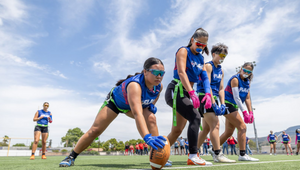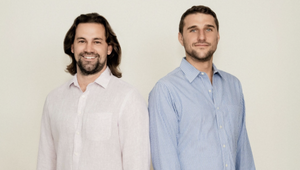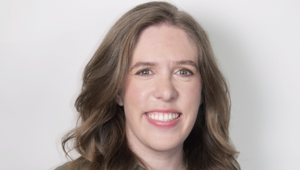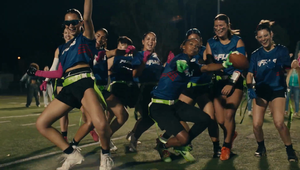
In Conversation: BANDIT EP Laura Relovsky and Olivia Boss
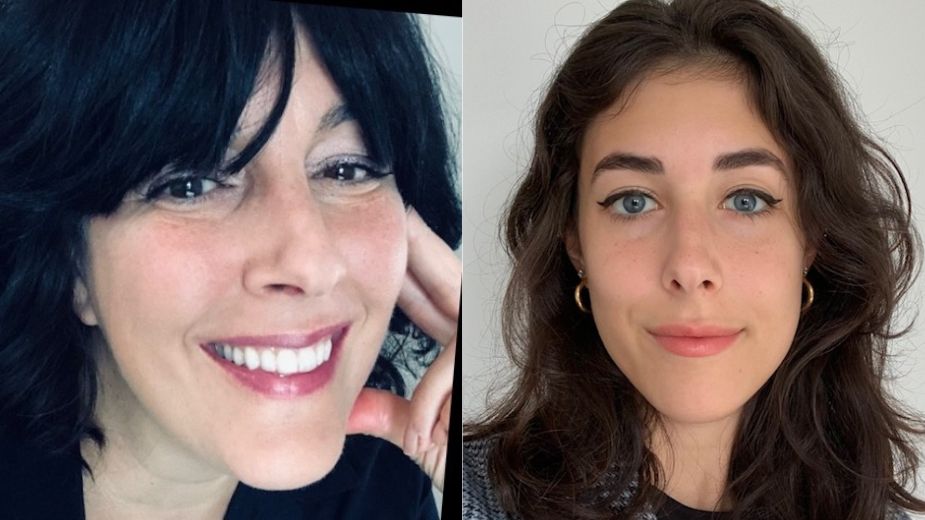
With another Women’s History Month well coming to a close, and particularly within an industry as rapidly shifting as advertising, each year has built upon the last in terms of awareness and progress. Before we put gender parity under the microscope, what was the culture of advertising like for past generations? What differences in the workforce do Gen X executives remember as compared to their Gen Z counterparts? And despite the industry’s successes, what has yet to be addressed?
NYC-based post production studio BANDIT EP Laura Relovsky sits down with her daughter, Olivia Boss, to compare notes and discuss where, and in what ways, women can continue to close equality gaps in both the workforce and society.
Welcome to The Boy’s Club
Laura Relovsky> I started my career when I was about Olivia's age in the late ‘80s. When I first got into the industry, I worked for an advertising agency and then moved into post-production. But being in post, we still worked with all the large advertising agencies.
Back then it was considered very much a ‘boy’s club’. And I say this very matter of factly. I have many male friends in the industry, so I don’t want to over-generalize, but I think many of my peers from that era would agree it was a very different time. Many of the higher-up creatives, like CD’s, copywriters, art directors, heads of agencies were men. You would see some women in producer roles, but for the most part, it was a very male-dominated creative field. And yes, it was the 90’s, so there was also a copious amount of bad behavior, sexual harassment, gender inequity. Not quite ‘Mad Men’ level, but close.
Now, having been in the industry for over 33 years, much of those behaviors and attitudes wouldn’t be tolerated anymore. Though, in some ways, especially with the current political and global climate, it seems we’re sliding a bit backward.
Olivia Boss> I definitely do see gender disparity, but in different ways. I think what I see has been ingrained over time. Women definitely still get harassed at work– it’s upsettingly common. But I work in education, in curriculum development, and in general, my workplace is very female-heavy. It seems like industries where women are heavily represented are often undervalued and underpaid– almost as if women’s presence disagrees with it being competitive. I used to be in archaeology doing fieldwork after women had entered the field in large numbers. This incidentally coincided with an element of decline in its prestige– or at least funding. I think we’ve seen that in other industries, too. So while I don’t experience direct, interpersonal misogyny at work, I see sectors full of women who are not compensated well enough, and less represented in the most senior roles.
Laura> Despite all of the positive changes in the industry, especially in terms of gender parity, I’ve seen a concerning trend lately, especially with looming concerns of a possible recession. There seems to be an inordinate amount of women being laid off from agencies. I’m seeing it on linkedin, facebook, in the trades. These are generally women around my age or older; high-paid producers or high-level creatives. I’ve seen a few men laid off too, but the disparity is sobering. It could be the times, it could be an anomaly.
Home Improvement?
Laura> Over the last decade or so, the ad industry, just like many other large industries, evolved as they became more concerned with how they appeared and their internal work environment. Now they promote women to higher roles, are more diverse, more inclusive. I think they’re also being guided by the initiatives of their clients like conglomerates P&G and Unilever. Everyone they work with is asked to adhere to a standard of workplace behavior and environment.
Cynics may say this started as optics, but as younger generations came into the workforce - Millennials, then Gen Z - they demanded that the companies they worked for be more forward-thinking, progressive, inclusive, diverse. They wanted their workplace to be a healthy and safe environment. I think it’s a good thing that younger generations won’t tolerate inequity.
Olivia> We’ve spoken about this, and both feel like campaigns that want to address issues facing women could really take a two pronged approach. The first prong is about representing all kinds of women and their experiences, especially marginalized women like trans women. Ads can help build self-esteem. Women should be centered when talking about women’s issues, but when it comes to the epidemic of violence against women, that’s obviously a men’s issue, too. Feeling isolated or struggling with mental health never excuses violence and hatred, but if ad materials on men’s mental health, for example, were targeted to online spaces where men seek community, like Reddit, maybe some at risk of being radicalized toward extreme misogyny could be reached.
Laura> I think you’re 100% right. While women’s issues must continue to be championed (and I think the ad industry has been doing a pretty good job), the problem can be approached more holistically. The gaps are closing: Women are in more positions of power, they’re being paid more, and other positive things are happening. But, I was reading a recent study which showed that 72% of men and 80% of women reported that they never had a conversation with their parents about sexual harassment, nor about misogyny. Many children today don’t understand what sexual harassment is, or what might constitute harassment in their own behavior, or whether they are being sexually harassed. Terms like feminism and gender equality are not given context. It is simply not acknowledged or discussed. This is a big issue, and if it’s not addressed early, how do we expect there to be any meaningful long term change? Right now we’re seeing a meteoric rise in misogyny, VAWGS, and toxic masculinity around the world and sadly in the US. If we can help with messaging to parents and children about fostering empathetic, compassionate discussions on these issues, we could move the needle. Advertising is uniquely positioned to have a massive impact on culture. But what does that advertising look like?
“Who’s Gonna Pay for a World-changing Campaign?”
Laura> In campaigns like Always “Like A Girl,” or Dove ‘Real Beauty’, they have the power to expose people to messages ripe for transformation. These messages stick in the minds of men and women, and boys and girls growing up in society, and can lead to generational impact. Sometimes you don’t know what influence an ad will have on people. However, I don’t recall ever seeing ads that shine a light on toxic masculinity. It seems to be a taboo subject. But if you look at people like Andrew Tate and the level of misogyny that his brand of masculinity inspires, it is incredibly concerning. We can’t bury our heads in the sand and pretend that the online environment doesn’t exist and isn’t growing.
Olivia> Outlets have a responsibility to consider who they give a platform to and why, because news coverage definitely grows a fanclub. Anyways, who’s going to pay for a world-changing campaign? What brand is interested in messages that may turn people off, just because it’s right?
Laura> Right. I don’t see many ads that address what we’re talking about in this conversation.
Olivia> The taboo is a big problem. I also want to point out that we’re discussing “women’s issues” through a particular western lens, and a binary one. There are definitely other contexts. But here, I would love a bigger spotlight on how individuals joined, and then left, incel and other extremist groups to better understand the roots of these problems, and exit strategies. There’s a Reddit forum specifically for individuals who left incel organizations. I think projects that let us hear from people who used to think that way, and now don’t, could really reach the most crucial audience. There’s an element of triage to this approach, but it seems like we’re there.
Laura> Right, but how would the advertising community make that kind of initiative digestible? I love what you’re saying, and I don’t think advertising can solve the world’s problems, but how can we make these kinds of messages relatable for the part of the public who may not want to recognize these issues are even happening?
Olivia> Well, I don’t think it has to be like a national broadcast campaign. The approach would change depending on the platform. Ads or PSAs don’t have to be designed for “the general public”, because not everyone needs to hear the same thing. Just target specific audiences and platforms at first.
Now What?
Laura> Being women’s history month, and talking about “next steps,” I think there’s a lot to be said about the word ‘feminism.’ It gets a bad rap. But to be honest, I think feminism is good for men, too. How do we, while elevating women, hit home the notion of challenging different masculine stereotypes and seeing women as allies? I’m lucky to know and work with many men who value women as allies and equals and would consider themselves feminists. But how do we make the term less of a negative to other groups?
Olivia> I think in terms of next steps, it's so important to know your audience. I'd imagine that sometimes it is better to show, not tell. Challenge toxic masculinity in ad storylines, but don’t call it feminist. The sad truth is that the term does turn some – including women – away, which is its own type of misogyny.
Laura> Agreed - targeted advertisements for young men, ones looking for a community, with a much healthier understanding of what masculinity is. A focus on courage, integrity, compassion, and acceptance. Then, we can promote the ad on social media platforms where they live. There’s an amazing organization doing a fantastic job promoting this notion. It’s HeForShe.org which is an initiative that stemmed from UNWomen. Its aim is to empower men and boys to be allies and bring them into the conversation about gender equality. Their messaging ranges from ‘How to be a good digital citizen’ to 'how to challenge negative masculinities and not just be a bystander’. We need to lean into this type of messaging, and find ways to bring it even more mainstream.
And back to what I talked about earlier, which is that most children aren’t even taught what these terms mean. They don’t always understand the impact of certain behaviors. Parents need to go beyond platitudes like be respectful, or do unto others. It needs to go deeper. To me, the key is to reach kids (and their parents) when they’re in grade school. Advertising has the potential to help in a very targeted way, we just have to stay conscious, keep pushing out positivity and humanity. Focus on promoting empathy, compassion, and most importantly, allyship among genders. I often think of a mantra of an old friend of mine (thanks DH): “Teach the babies”. It’s so powerful, yet so simple. I honestly think it’s the key to everything.









